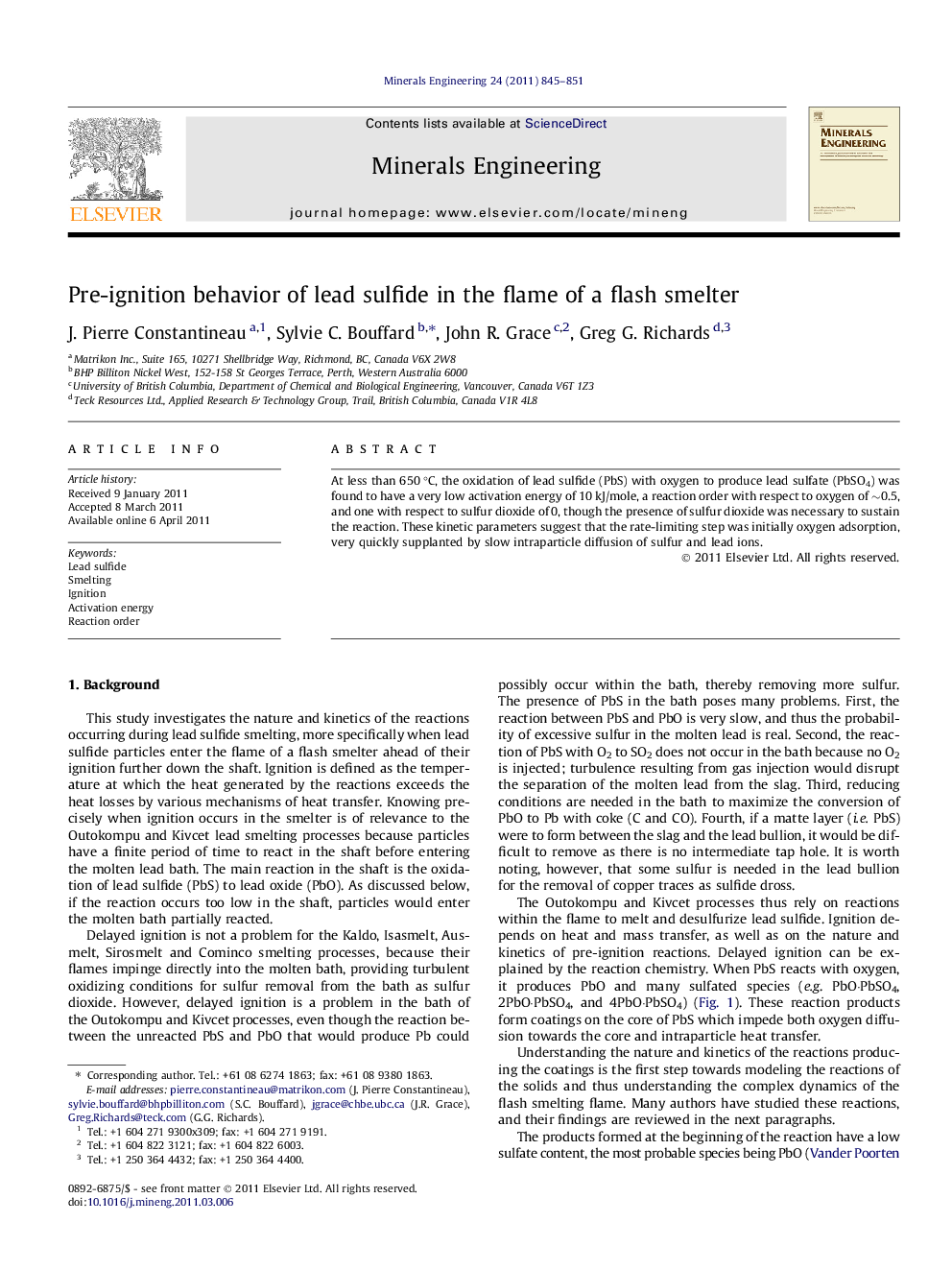| Article ID | Journal | Published Year | Pages | File Type |
|---|---|---|---|---|
| 233755 | Minerals Engineering | 2011 | 7 Pages |
Abstract
At less than 650 °C, the oxidation of lead sulfide (PbS) with oxygen to produce lead sulfate (PbSO4) was found to have a very low activation energy of 10 kJ/mole, a reaction order with respect to oxygen of ∼0.5, and one with respect to sulfur dioxide of 0, though the presence of sulfur dioxide was necessary to sustain the reaction. These kinetic parameters suggest that the rate-limiting step was initially oxygen adsorption, very quickly supplanted by slow intraparticle diffusion of sulfur and lead ions.
► Oxygen adsorption and intraparticle diffusion of sulfur and lead were the rate-limiting steps in the oxidation of lead sulfide at temperatures less than 650 °C.
Related Topics
Physical Sciences and Engineering
Chemical Engineering
Chemical Engineering (General)
Authors
J. Pierre Constantineau, Sylvie C. Bouffard, John R. Grace, Greg G. Richards,
